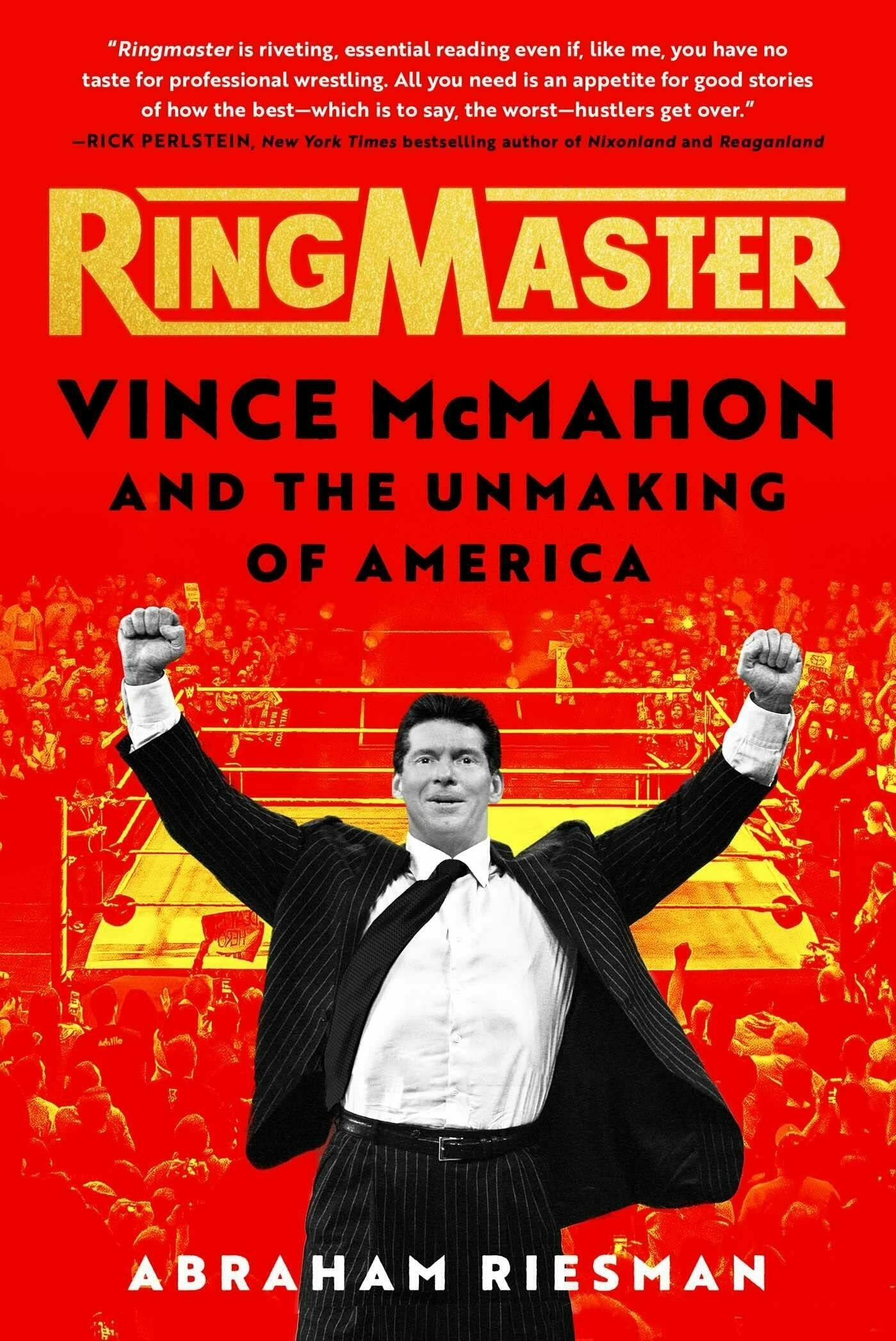Blog
Ringmaster: Vince McMahon and the Unmaking of America - A Review

For the past few years, Abraham Josephine Riesman has been one of my favorite writers in the world of pop culture. Between their always great Vulture articles and their fantastic Stan Lee book, True Believer: The Rise and Fall of Stan Lee, I know that when Riesman writes something, I need to sit up and take notice.
So, when I found out that Riesman’s newest book, Ringmaster, available today, was going to be the first attempt at making a definitive look at the life and times of WWE chairman and all around enigmatic, if not psychotic, figure, Vince McMahon, I became overjoyed. True Believer was a great look at another almost mythical figure in Stan Lee, so undoubtedly, Ringmaster would follow in kind.
Unfortunately, however, here is where I learned the trouble of high expectations. Over the run of its 461 pages, Ringmaster is a great encapsulation of the life and times of Vince McMahon. That said, as a deep wrestling fan, I’ve been reading about McMahon and his various trials and tribulations for decades now, so the book already is on the back leg. Attempting to write a narrative for those who haven’t really heard of Vince McMahon, Ringmaster serves as a great 101 level course for the man for those new to his life story, but for me, I was aching for a 201 level deep dive.
You get a holistic view of McMahon’s childhood, his terrible step father, his estrangement from his father (until he takes the reigns of his father’s business, the World Wide Wrestling Federation), the birth of WrestleMania, the apparent coverup of murder and sexual impropriety, this book has a bit of everything. Yet, at the same time, the story is somewhat hamstrung by Riesman’s own fandom. It’s stated early on that Riesman primarily watched pro-wrestling around the death of Owen Hart in 1999 until about 2001. To that same point, Riesman has the majority of Ringmaster end here.
This is a massive and unfortunate gap for those hoping for a career spanning guide to the life and times of Vince McMahon. The 1980’s heyday, mid-90’s downfall, and late 90’s rebirth are stories constantly told, with varying degrees of validity, by both countless wrestling journalists, and WWE themselves. The post “Attitude Era" timeline, circa 2001, including such things as the murder/suicide of Chris Benoit, rise of John Cena, and embarking on their own streaming service have been relatively untouched, and remain so here. This is damned even further by the fact that — due to the time this was written and prepared for publication — the book does not delve into last Summer’s reveal of further sexual assault allegations, hush money, and ultimately, McMahon’s departure from the company. Until he returned at the beginning of the year. To sell the WWE.
Undoubtedly, there is a hell of a book in there…and unfortunately, that book is not in Ringmaster. After reaching 1999, a number of post 2000 highlights are discussed, but with nowhere near the level of detail or effort seen in the prior chapters. To tie together with the full title of the book — Ringmaster: Vince McMahon and the Unmaking of America — the end of the book tries to tie pro-wrestling tactics and a shared business history between McMahon and Donald Trump, but much like the coverage of a post 2000 era, this too feels glossed over and barely making more than a surface observation, when there is undoubtedly, more meat on the bone.
Perhaps the issue lies with me in the reader’s chair. I know too much about Vince McMahon, and have a want for what this book clearly isn’t. If you’re new to the world of wrestling, and haven’t heard these tales before, Ringmaster is a well-researched, eye-opening tome. But for me, it was running back prior material. I continue to adore Riesman’s writing, and hope that this book does well enough that they can write a second volume for the hardcores like me.
Ringmaster: Vince McMahon and the Unmaking of America is available now. An ARC was provided by the publisher via Netgalley in exchange for an honest review.
Tuesday March 28, 2023